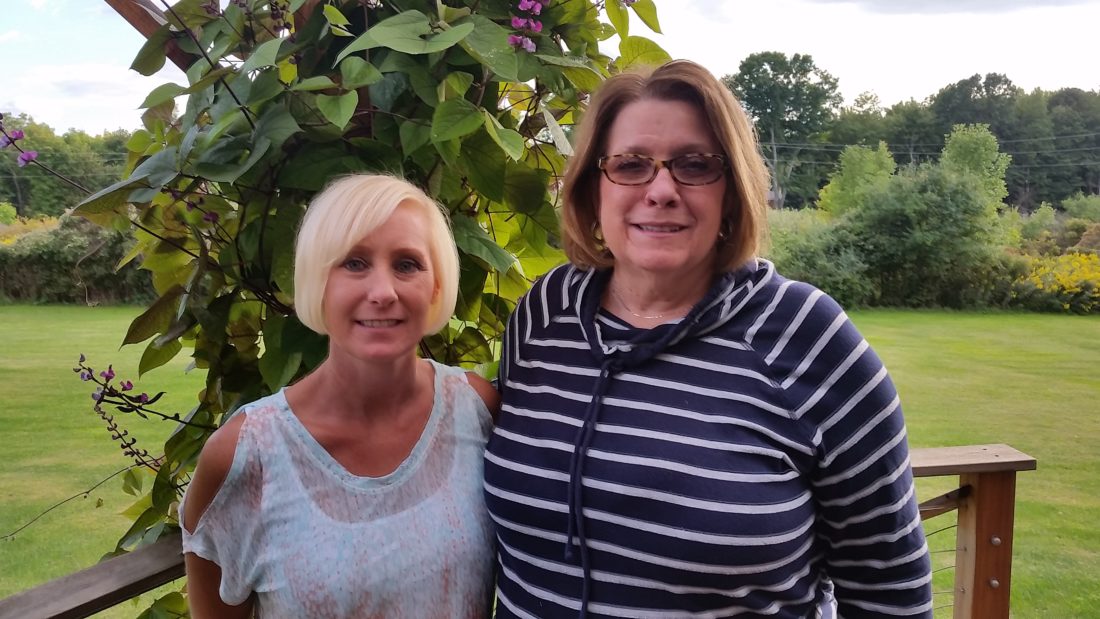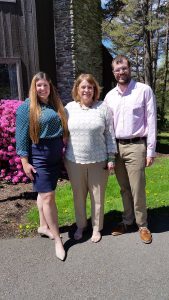Clarks Summit, PA resident, Diane Scheuer, was a teacher and mother in her early 30s when her life took a drastic turn. She was diagnosed with Primary Sclerosing Cholangitis, a chronic disease that slowly damages the bile ducts in the liver. Diane knew that she may need a liver transplant at some point in her life, but prayed that it wouldn’t be for many years.
She was blessed with more than two decades of health. Then, she had blood work done and doctors noticed that her liver enzymes had increased, which was problematic for her condition. She also began to have issues with water retention and swelling. Doctors prescribed diuretics for her, but it persisted. The swelling progressed to the point where she was unable to walk without using a walker. She needed at-home nursing care and was added to the organ transplant waitlist for a new liver.
As her physical health and vitality were diminishing, she also began to experience cognitive issues. Because of the excessive ammonia that was in her system due to her failing liver, she developed encephalopathy. “The symptoms were terrible.” said Diane. “I was confused and couldn’t think straight. It just continued to get worse. My abdomen was filled with fluid and I couldn’t breathe. There was so much fluid surrounding my lungs that I couldn’t inhale.”
Diane began to receive treatment that drained the excess fluid, but it negatively affected her kidneys. “I went to the hospital and they said that I needed to stay. My kidneys were failing in addition to my liver. One day I’d have treatment to drain the excess fluid from my abdomen and the next day I’d have dialysis. My eyes and skin had changed color, and my skin would just peel off. I was on oxygen and couldn’t even stand up at this point. It was really bad.” said Diane.
“I felt like I’d been resurrected because of my transplant. I was renewed – from sick to healed. God led me through it.” — Diane Scheuer
Diane had always been a positive person, but her health issues were challenging her outlook on life. “I came very close to dying and got a liver just in time. My transplant went really well and my swelling and breathing all began to improve. When I woke up from my surgery, I looked at my legs and they didn’t look like mine. All of the fluid was gone and they looked so skinny!” said Diane.
“I was in rehab for a week after my transplant, and my goal was to make it to mass on Easter. It was so symbolic for me. I felt like I’d been resurrected because of my transplant. I was renewed – from sick to healed. God led me through it. I had to wear a mask and gloves, but I made it to Easter mass. I felt so good that day.” said Diane.
“When I came home from the hospital, I wrote to my donor’s family. My donor, Brett, was a young man who had died in a car accident. I wanted to connect with his family because I felt like I understood what they were going through. I also lost a daughter when she was 27. It was extremely emotional.” she said.
After two years of correspondence, Diane met her donor’s mother, Michelle. One year after that, Diane stayed with Michelle and her family and shared many special memories. “Michelle is happy that I’m so healthy. She knows that Brett lives on in me, and we have a very close relationship. I am healthy now and feel like I need to give back because I’ve been so blessed. My faith has always been strong, but it really pulled me through.” Diane said. “It feels good to pay my gift forward.” Diane volunteers at homeless and women’s shelters and soup kitchens. “I feel a new dedication to helping others, including speaking about organ donation. I have such gratitude about my transplant that I want to spread the word about organ donation. My positive attitude pulled me through, and I was only able to stay positive because I trusted in God.”
One of the most common misconceptions about registering as an organ donor is that one’s religion does not support it. In fact, all major religions support organ donation.
No final act is more heartfelt or caring than donating ones’ organs. It shows an individual’s compassion for others, and can change lives forever. The decision to donate – often made at a grief-stricken and terrible moment in life – is one that is far-reaching and greatly beneficial. One organ donor can save and enhance the lives of up to 75 others – a gift that is impactful to the recipients, their family members and the community on a whole.


